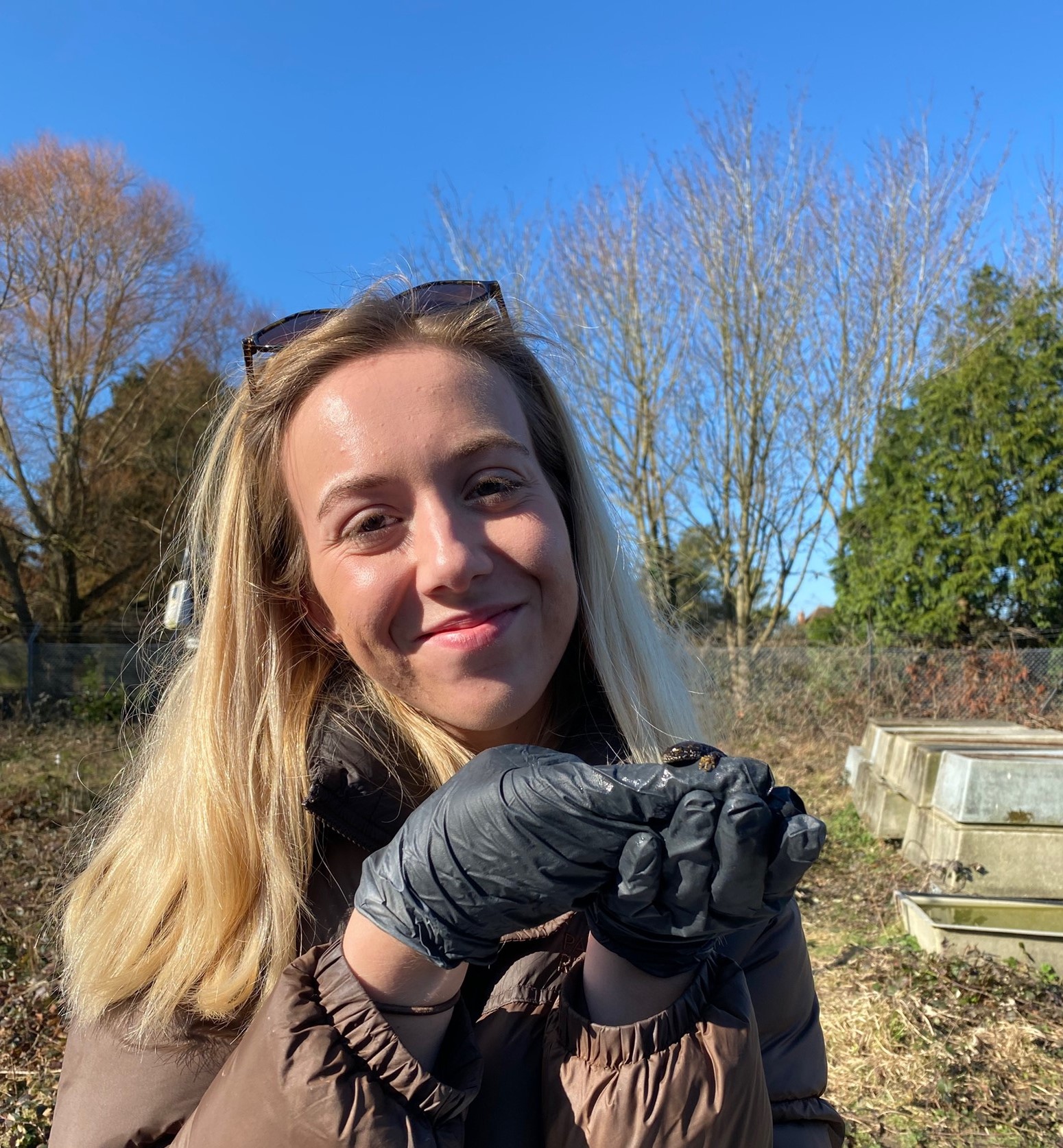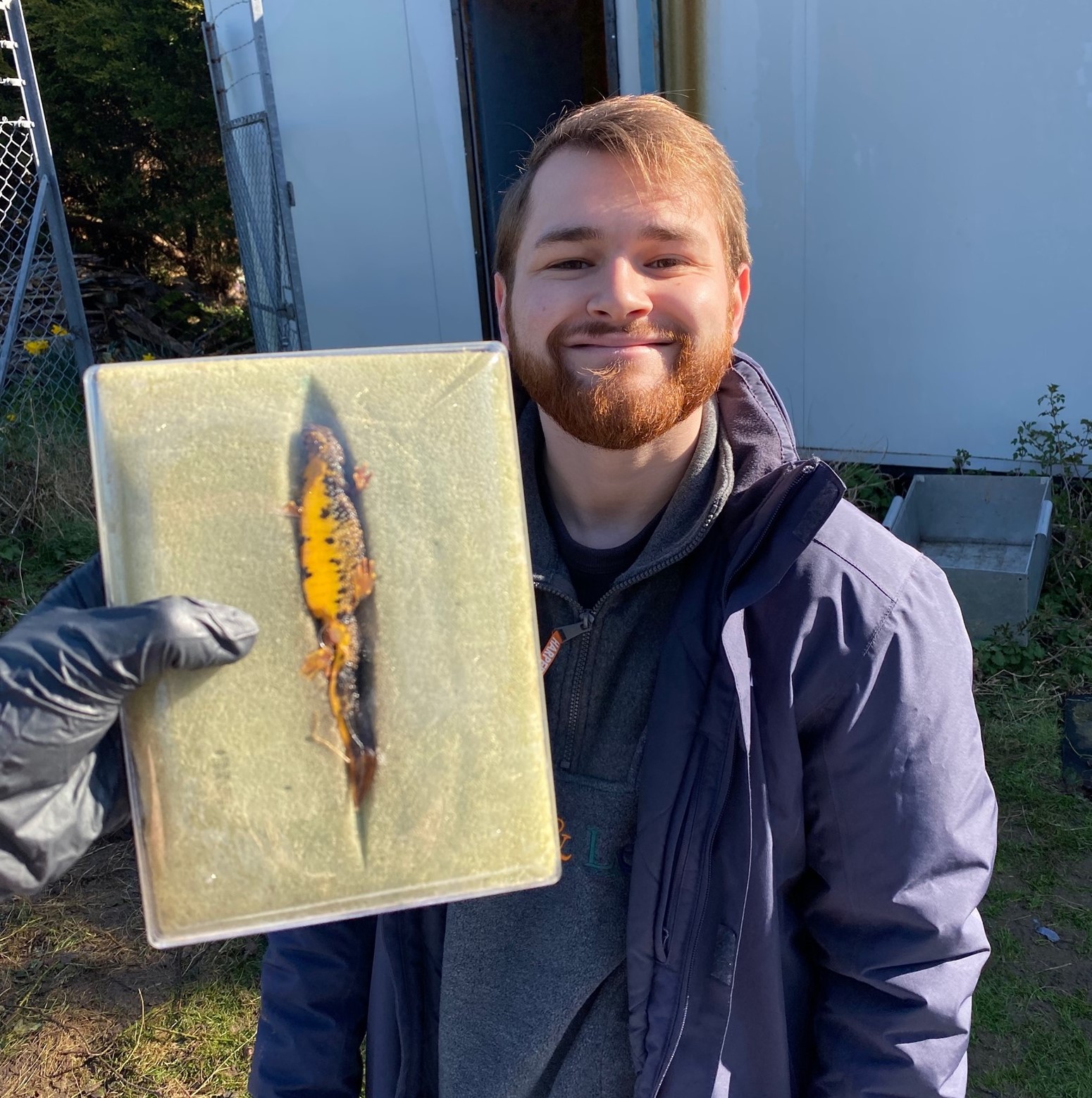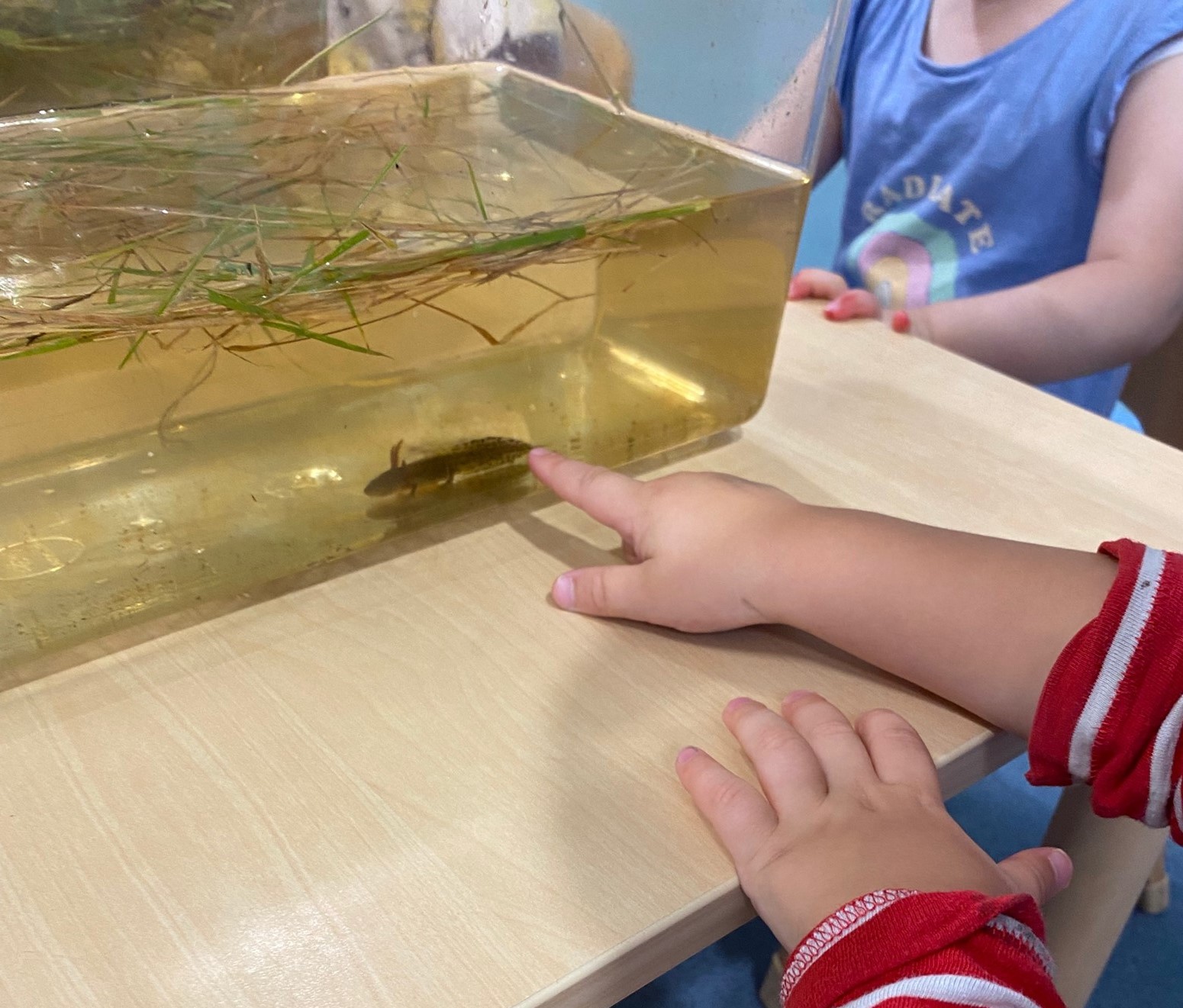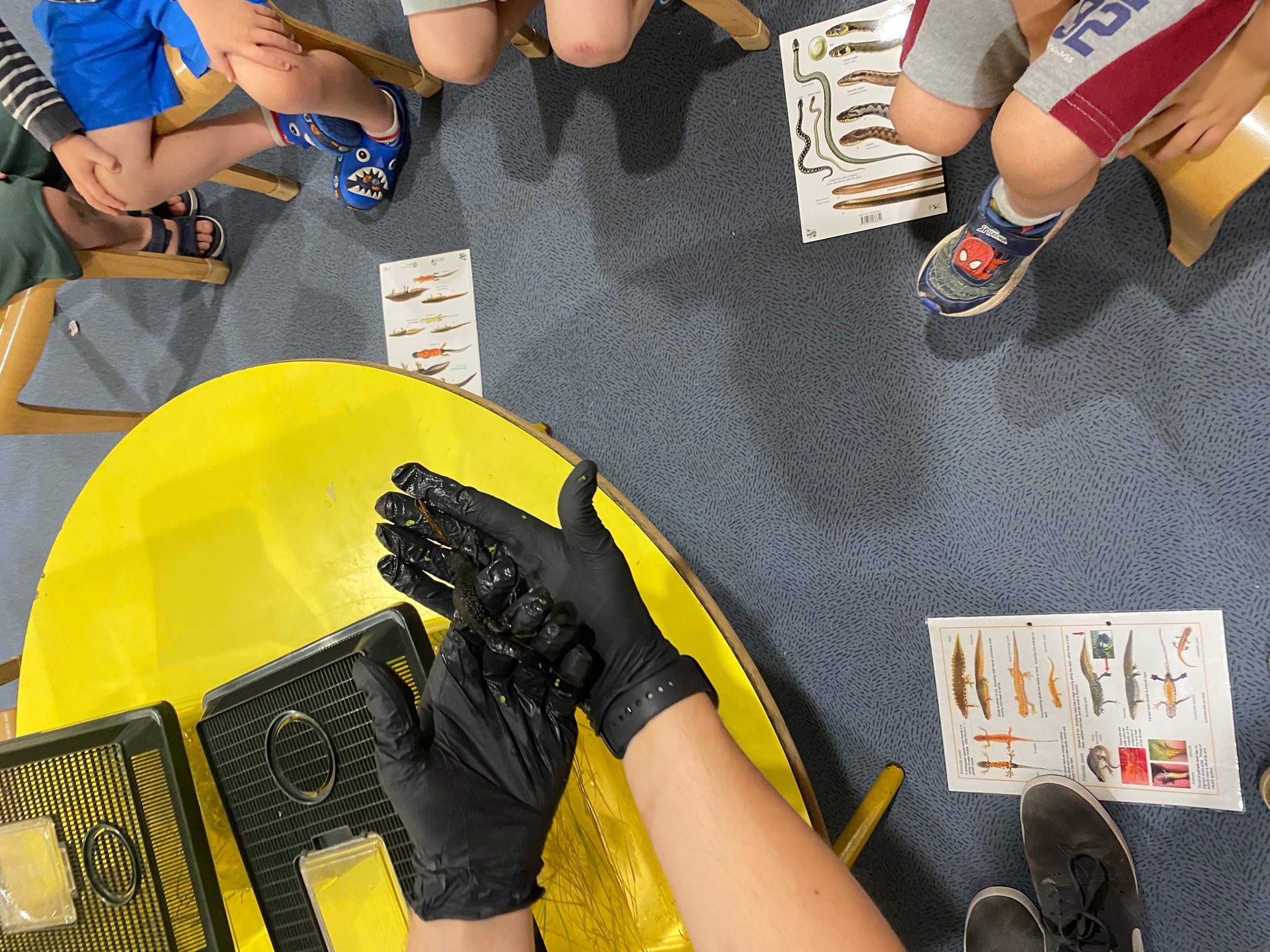Thomas Fry and Ellie Dobbs visited a Canterbury nursery this month to show early years students the great crested newts found on campus and whet the appetite of the next generation of conservationists.
MSc students Thomas Fry and Ellie Dobbs visited a Canterbury nursery on Friday 22nd July to give early years students a look at the great crested newts found on campus! The visit was intended to inspire the children with the amazing animals that can be found on our doorsteps and start to instil a desire to take care of the environment.
‘Normally, this type of education is tailored towards school age children however’ Ellie explained ‘but this age group are interested in wildlife and all things nature related so we felt it was important to use the critical great crested newt research that we are participating in to help spark interest before the children even start school!’

‘I have been interested in wildlife and conservation since I was very young, catching frogs, looking for snakes, watching birds etc. and I would like future generations to experience these kinds of interests and passions which are sometimes difficult for parents or even teachers in a school environment to provide. Many people I have studied and worked with were not even aware conservation was a degree path until recently. Hopefully, this outlook will change as more and more people become fascinated by nature from early childhood and grow up to become the new generation of Jane Goodalls, David Attenboroughs, Steve Backshalls etc.’
Tom has a passion for British wildlife. ‘Coming from the centre of one of Kent’s largest RSPB nature reserves I have grown up playing in wildlife, watching as species have dwindled around me, as the land has slowly become more urbanised. Hopefully, through helping children from early stages we can help influence them into being just as amazed by our surroundings as I know Ellie and I are and grow to help fight for nature.’

During the visit, they showed the children both adult and juvenile forms of great crested newts to demonstrate the life stages of amphibians and explained how the species can grow from such a small metamorph to significantly larger adult size. ‘We explained the differences between male and female individuals and showed them pictures of what the invasive alpine newt looks like! Although we had to change a lot of our terminology so the children (aged 1-4) could understand us, the information was still the same and they all seemed happy to be learning something new! The loved getting to see an animal in the classroom so close up!’

‘As part of the research project monitoring the population ecology of the Great Crested newts, we have also been helping teach the undergraduate students how to survey the species as part of one of their modules.’ Ellie explained ‘This experience is helping us work towards getting our newt handling licences -we are currently working under Professor Richard Griffiths’s licence. Obtaining our own handling licences of protected species in the UK means we can work in the future conducting ecological surveys for planning development, conduct further research on the species, and provide new education opportunities.
Thomas Fry and Ellie Dobbs are both studying for an MSc in Conservation Biology.
Read More about our research on The Long-term population ecology of the great crested newt in Kent.

